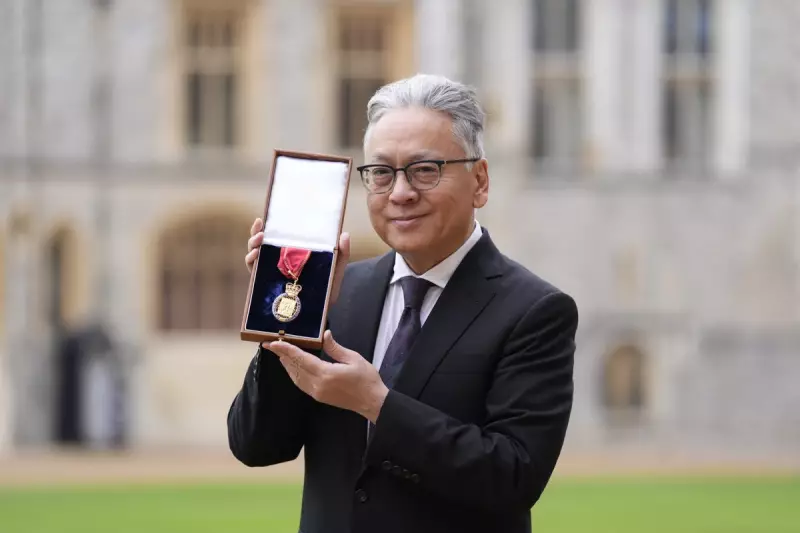
In a ceremony steeped in centuries of tradition, Nobel laureate Kazuo Ishiguro was formally knighted by King Charles III at Windsor Castle, joining the elite ranks of British literary knights. The acclaimed author of The Remains of the Day received the honour in recognition of his extraordinary contributions to literature.
A Royal Honour for Literary Excellence
The 69-year-old author, known for his meticulously crafted novels exploring memory, time and self-deception, was among the distinguished recipients at the prestigious investiture ceremony. Ishiguro, who won the Nobel Prize in Literature in 2017, now adds a knighthood to his impressive collection of accolades.
The Japanese-born British writer has long been celebrated for works that blend emotional depth with exquisite prose. His knighthood places him alongside literary giants like Sir Salman Rushdie and the late Sir V.S. Naipaul in the annals of honoured British authors.
From Nagasaki to Windsor Castle
Born in Nagasaki, Japan, in 1954, Ishiguro moved to Britain at age five when his father began oceanography research. He studied English and philosophy at the University of Kent before completing a master's in creative writing at the University of East Anglia under the legendary Malcolm Bradbury.
His literary career exploded onto the scene with A Pale View of Hills in 1982, but it was The Remains of the Day that catapulted him to international fame, winning the Booker Prize in 1989 and being adapted into an Oscar-nominated film starring Anthony Hopkins and Emma Thompson.
A Legacy of Literary Masterpieces
Throughout his career, Ishiguro has demonstrated remarkable versatility, moving from Japanese postwar narratives to English period pieces, and even venturing into speculative fiction with works like Never Let Me Go and The Buried Giant.
The Nobel committee praised him for novels that "uncover the abyss beneath our illusory sense of connection with the world" and noted his works are marked by "great emotional force."
The knighthood ceremony at Windsor Castle represents not just personal recognition for Ishiguro, but a celebration of Britain's continued leadership in global literature and the arts.





